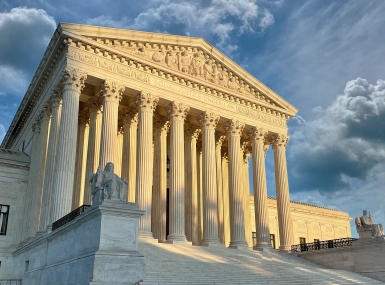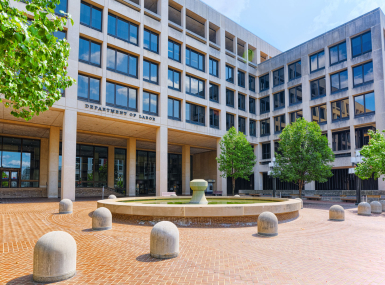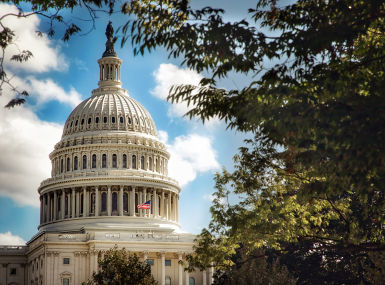Supreme Court Update: Sheetz v. El Dorado County
Author
Upcoming Events
Related News

Supreme Court Update: Sheetz v. El Dorado County
COUNTY NEXUS
Exaction or impact fees are an important way for local governments to balance the benefits of growth with its impacts on the pre-existing community. Limiting the ability of counties to legislatively enact generally applicable development impact fees would impede our efforts to protect the health and welfare of their communities while ensuring that those who create the need for new community infrastructure fairly bear the costs.
BACKGROUND
A resident of El Dorado County, California challenged the constitutionality of a traffic mitigation fee required in exchange for a development permit, arguing that the fee violates the Fifth Amendment’s takings clause under the Nollan/Dolan unconstitutional conditions test, which prevents governments from applying exaction fees unless they can demonstrate an essential “nexus” between their interest and the fee charged as well as “rough proportionality” between the fee charged and the proposed impact of the development. This case asks whether Nollan/Dolan is limited to fees issued on an an individual basis or whether it also applies to legislatively enacted, generally applicable impact fees and thereby compels local governments to make case-by-case determinations if such fees are warranted.
NACo ADVOCACY
In a Local Government Legal Center Amicus Brief filed in support of the respondent, NACo argued that counties across the country rely on legislatively adopted impact fees to address the burdensome impacts of new development on the availability and quality of local infrastructure, facilities, programs, and services. Without the ability to impose impact fees, local governments would need to resort to imposing new or increased taxes, displace the anticipated infrastructure costs necessary to meet the needs of new residential and commercial development onto existing residents and businesses or even impose development moratoria in the absence of funds to pay for required infrastructure. Expanding Nollan/Dolan to encompass legislative enacted impact fees could diminish this important policy tool.
CURRENT STATUS
On April 12, the Court issued a narrow 9-0 decision vacating the state court's ruling that Nollan/Dolan does not apply to legislatively-enacted impact fees and remanding the case for another look. While the Court's ruling does create heightened constitutional scrutiny for legislatively-enacted impact fees, it does not prevent local governments from enacting reasonable permitting conditions, including impact fees, via legislation. Learn more about the Court's decision and what it means for counties here.
2024-2025 Supreme Court Term

NACo Legal Advocacy: Ames v. Ohio Department of Youth Services
As one of the largest employers in the country, counties have a significant interest in cases like Ames v. Ohio Department of Youth Services (Ames v. Ohio) that could expand county liabilities as employers.

NACo Legal Advocacy: City of Buffalo et al. v. Kia/Hyundai
The question at hand in City of Seattle et al. v. Kia/Hyundai is whether or not the Federal Motor Vehicle Safety Standard preempts state tort claims brought forth by local governments alleging that Kia and Hyundai’s failure to install “reasonable” anti-theft technology constitutes negligence and public nuisance.

NACo Legal Advocacy: Perttu v. Richards
Perttu v. Richards has implications on the Prison Litigation Reform Act (PLRA) and could increase the amount of Section 1983 inmate-initiated cases against county jails that reach federal court, ultimately resulting in counties having to expend resources on frivolous lawsuits.

NACo Legal Advocacy: McLaughlin Chiropractic Associates, Inc. V. McKesson Corporation
McLaughlin Chiropractic Associates, Inc. V. McKesson Corporation could make it more difficult for counties to challenge FCC orders, many of which have taken steps to preempt and curtail local authority by limiting counties’ abilities to manage their own right of way and assess fair market value permitting and impact fees on providers seeking to construct, modify or extend telecommunications infrastructure in their communities.

NACo Legal Advocacy: San Francisco v. Environmental Protection Agency (EPA)
San Francisco v. Environmental Protection Agency (EPA) has implications for the ability of county governments that own and operate wastewater treatment facilities to comply with National Pollutant Discharge Elimination System (NPDES) permit requirements.

NACo Legal Advocacy: Lackey v. Stinnie
Lackey v. Stinnie will impact the ability of state and local governments to avoid paying litigation fees in a civil rights case if they change their conduct (i.e. repeal a law) after a court has granted a preliminary injunction.

NACo Legal Advocacy: Bondi v. VanDerStok
Garland v. VanDerStok has implications for the ability of county law enforcement to uphold public safety and investigate crimes involving ghost guns.

NACo Legal Advocacy: Stanley v. City of Sanford
Stanley v. City of Sanford will impact the ability of county governments to balance budgets by reducing or eliminating post-employment benefits for disability retirees.

NACo Legal Advocacy: EMD Sales, Inc. v. Carrera
EMD Sales, Inc. v. Carrera could make it more difficult for county governments to prove exemptions under the Fair Labor Standards Act (FLSA), which would increase the potential for costly litigation.

NACo Legal Advocacy: Federal Communications Commission, et al v. Consumers' Research, et al
Federal Communications Commission, et al v. Consumers’ Research, et al. (FCC v. Consumers’ Research) could jeopardize what is known as the Universal Service Fund (USF). Through the USF, the FCC has provided billions of dollars to local governments and our residents, helping provide essential telecommunications and broadband services to unserved and underserved communities. FCC v. Consumers’ Research challenges the FCC’s legal authority behind the USF, putting multiple programs essential to equitable broadband deployment at risk.
Featured Initiative
Supreme Court Advocacy Hub









